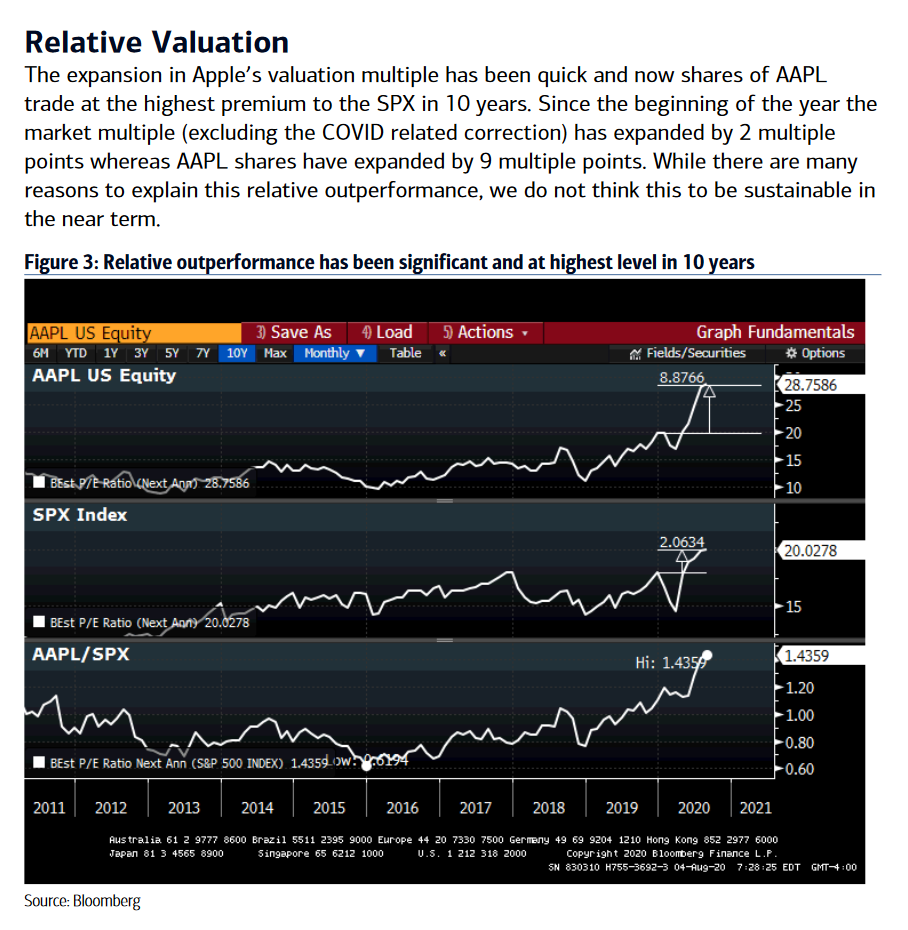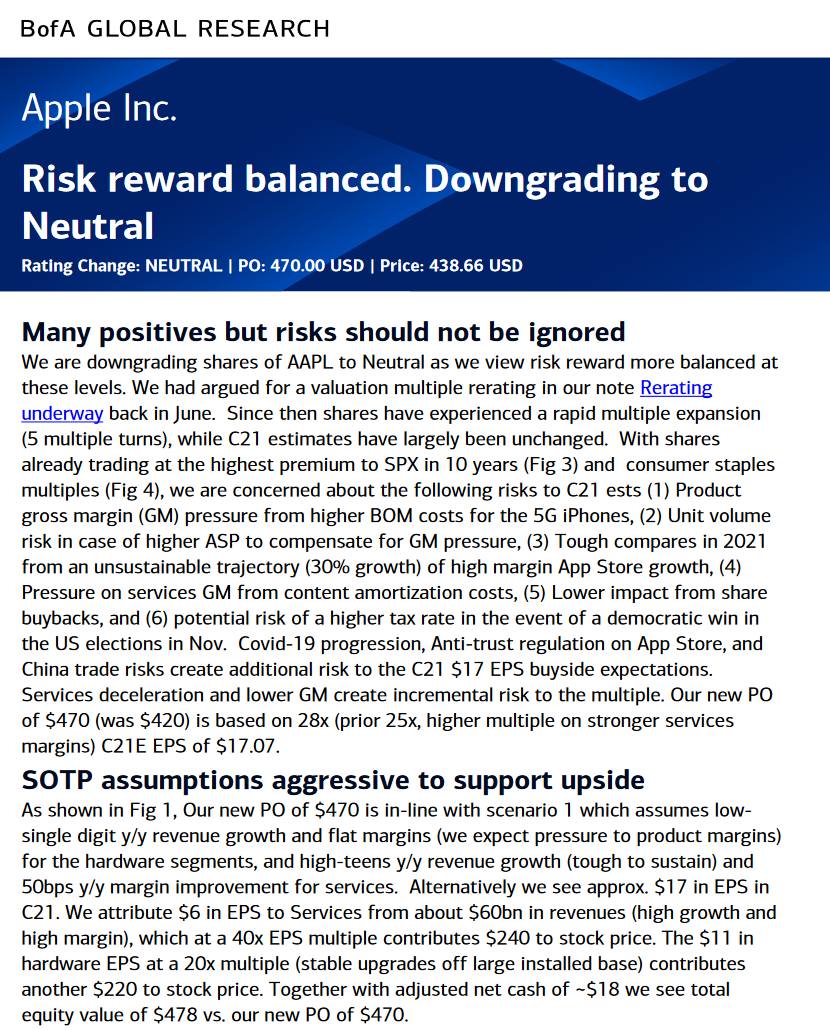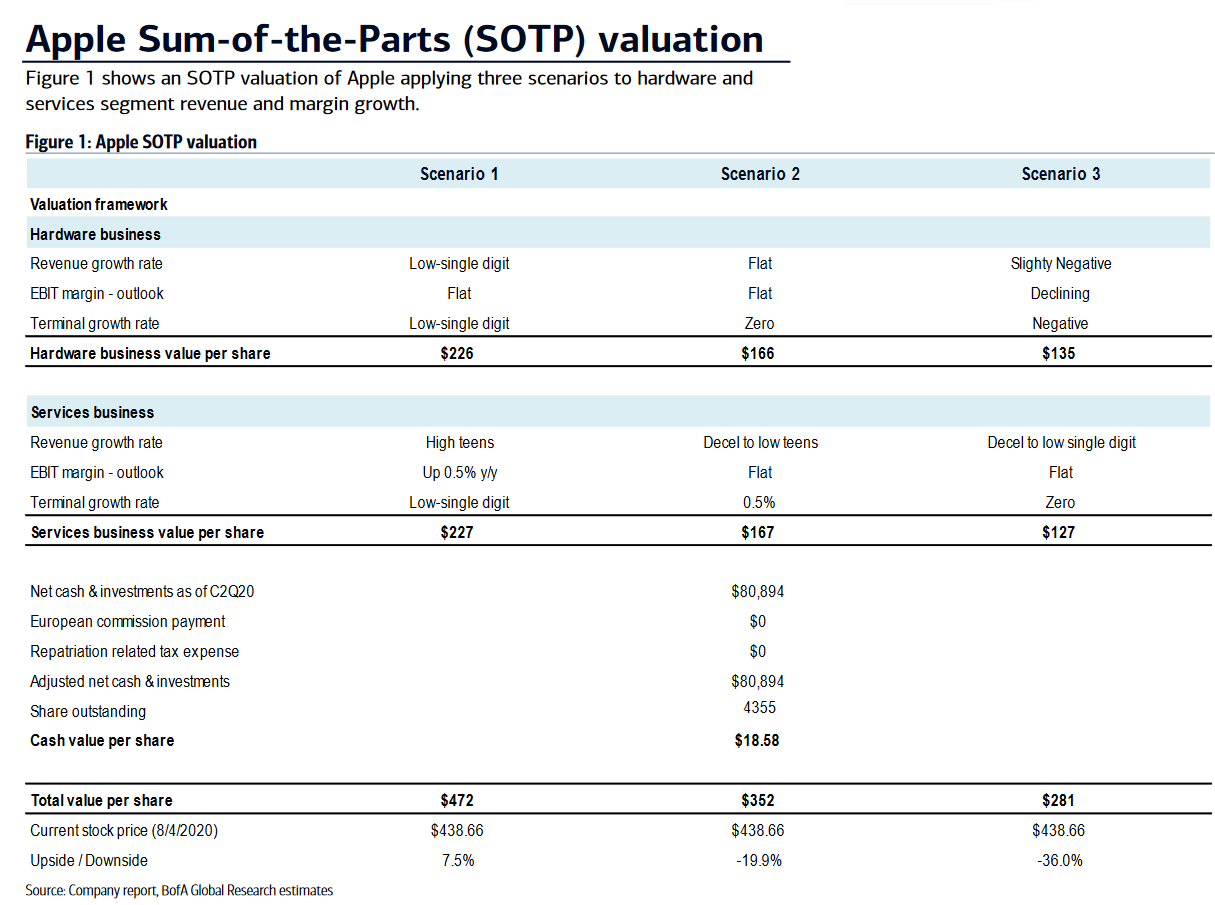BofA Downgrades Apple To Neutral, Cites Risks And Valuation Concerns
Tyler Durden
Wed, 08/05/2020 – 12:00
Apple received a rare analyst downgrade on Wednesday morning from Bank of America, as the market capitalization of the equity approaches an all-time high $2 trillion.
BofA analyst Wamsi Mohan downgraded Apple’s stock to “neutral” from “buy”, citing rapid multiple expansion that has pushed valuations to rich levels. Besides the downgrade, the analyst increased his price target from $420 to $470.
Mohan said Apple shares are trading at the highest premium to the S&P500 in a decade, and now represents 6.5% of the market cap of the entire S&P500.
He outlined several risks that remain ahead, including a lower impact from share buybacks, higher tax rate if Democrats win the U.S. elections in November, gross margin pressures for 5G iPhones, and tougher comparables in 2021 for high-margin App store growth.
BofA’s sum-of-the-parts valuation (SOTP)
He also said the virus pandemic, geopolitical risks with China, and anti-trust regulation on the App Store creates even more risks for the stock in 2021.
Mohan’s concerns about AAPL’s valuations come as the stock is trading at a record 45% above its daily 200 day moving average.
As revenue stalls, Tim Cook’s successful scheme to goose the equity higher is a massive stock buyback program, making the company appear to beat earnings each quarter.
Apple Revenue (Billions)
2020(est): 272
2019: 268
2018: 266
2017: 229
2016: 216
2015: 234
2014: 183
2013: 171
2012: 157
2011: 108
2010: 65
2009: 43
2008: 37
2007: 25
2006: 19
2005: 14
2004: 8.3
2003: 6.2
2002: 5.7
2001: 5.4
2000: 8.0
1999: 6.1
1998: 5.9
1997: 7.1
1996: 9.8$AAPL— Charlie Bilello (@charliebilello) July 30, 2020
And as shares outstanding evaporate – with the explicit blessing of the Fed which is now buying AAPL bonds whose proceeds are used to repurchase stock – the company’s EPS and stock price continue to soar.
Twitter handle Ben Mackovak makes a great point:
“It’s essentially the same story. $AAPL enterprise value +90% over past 2 yrs despite no net income growth. 100% driven by multiple expansion, which I think is driven by Fed policy. When the Fed Funds rate was 2.4% in 2019, AAPL had a PE of 15x. Today Apple PE ratio is 32x.”
Apple’s rapid multiple expansion, pushing valuations to extremes, along with overstretched technicals, could result in a Fed-induced blowoff.





